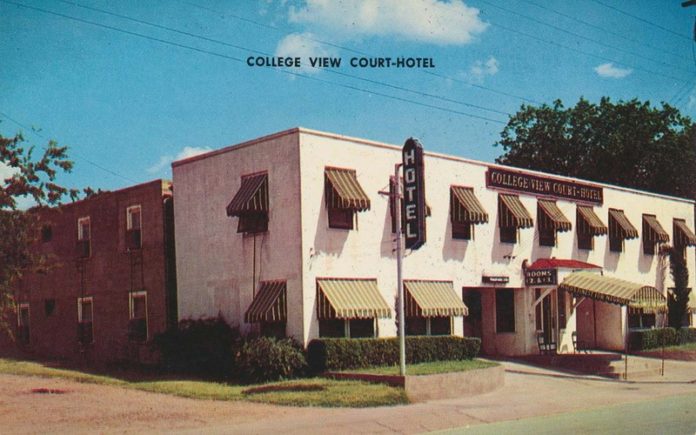
By Emma Whitaker | Reporter
Since “Green Book” won Best Motion Picture, Best Performance by an Actor in a Supporting Role, and Best Original Screenplay at the Oscars, the film has sparked serious conversation nationwide about segregation.
In the movie, Mahershala Ali plays a talented black musician who hires a rough, white driver to escort him on a tour in the South. Filled with Jim Crow laws and deep segregation, Ali’s character Don Shirley is forced to stay in black-only establishments, mentioned in the “Green Book.”
Waco itself had a “Green Book,” which included establishments such as College View Court-Hotel on Elm Street. Jackie Barber, who works at Penland Crossroads Dining Hall and was raised within segregated Waco, lived near Elm Street and recalls the inhuman treatment of the black community during this era.
The College View Court-Hotel on Elm Street was an overnight inn listed for years in “Green Book” guides. Waco’s “Green Book” lists show Waco’s pre-interstate era, the black only areas centered mainly around or on Elm Street. Barber lived near Elm Street and said it was a popular road for the black community.
“Elm Street was the popping street in Waco,” Barber said. “There was an all black theater, there was the all black grill, all black cafes, shoe shops, barber shops, juke joints and funeral homes. East Waco was where people congregated for community.”
Additional Waco establishments recommended in Green Books included Malone’s at Clay Street, and Edward’s, at 1029 Elm St, and the list continues.
Martin Luther King Jr. was assassinated during Barber’s senior year of high school. In college, Barber said he began to hear the teachings of Malcolm X. Barber graduated college in 1974, and said he eager to stand for what was right.
“We were tired of being suppressed by the white man,” Barber said. “I could say I was a soldier of the civil rights movement. I saw what was happening in Waco, where, on Fifth Street, a white person would walk towards you, and you had to step off the sidewalk and into the streets, because you were black.”
Barber lived through numerous landmark events, including the Waco tornado of 1953. He said his grandma lived through lynchings and hate crimes and that segregation was his childhood reality. As a child, Barber said white men would spit on their shoes in the street just to order Barber to shine them.
“White bathrooms, colored bathrooms. Colored water fountains, white water fountains. We accepted that. We knew what we had to do. We knew how to play the role,” Barber said. “But once we were not working for that white man, we went back into our own side of town. We had our own churches, our clubs, our meetings. This is where black people could be black people.”
Most students have no idea that the ideas shared across the big screen in movie “Green Book” would reflect the not-so-distant past of their beloved Waco community. Barber said that if they truly looked, they would see that the community is still often divided.
“Racism will be around for a long time. It’s the teachings that somehow linger on,” Barber said. “Yet why would you treat anyone less than yourself if you’re a Christian? When you look down on someone, you are falsifying your own beliefs.”
Barber challenges white people to question what they have been taught, or better yet, what they have not been taught. Dillion, Mont., junior Gunnar Maisch said the thought of segregation is shocking.
“It’s really sad to think about segregation. It’s weird, being in Baylor’s atmosphere where it’s so nice, to think about what’s happened outside,” Maisch said.
Barber said he loves to watch his students in Penland Dining Hall. He loves to see friendships forming and black students thriving.
“I don’t blame these kids for not knowing, because their parents beat around the bush. They didn’t tell their children the full truth,” Barber said. “If you don’t change with time, you’re still going to be living from behind.”
Barber said he wakes up every morning and prays to God. He blesses those for him, and those against him.
“We are truly blessed,” Barber said. “God didn’t have to give us another day, but he did. So regardless of my circumstances, I am truly blessed.”





